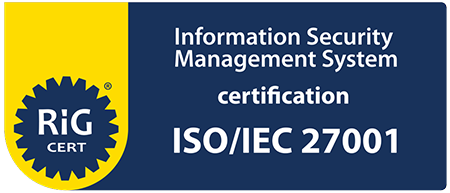1. PEOPLE ANALYTICS
At least 71% of businesses (Deloitte) consider people analytics as a high priority as it is expected to be the most desired and in demand skill very soon.
Rather than relying on your intuition, you must leverage people analytics to allow you to have a deeper understanding of how to successfully identify, engage, train, and retain top talent. By harnessing the power of data, people analytics enables your organization to draw up actionable insights to fuel business growth.
2. STRONG GRASP OF ADVANCED HR TECHNOLOGIES
It is necessary for HR professionals to have the knowledge and technical know-how when it comes to advanced HR technologies available today. This will enable you and to accurately define the right automation strategy suitable to your company needs. A strong grasp of the HR tech is the second-most important skill for HR professionals to develop (Workflow).
3. SOFT SKILLS
While hard skills are important, companies today don’t overlook the benefits of soft skills. This is especially true for HR executives because communication, persuasion, and adaptability are skills that are invaluable to them as their task is to effectively manage and deal with people from all walks of life.
4. BUSINESS AND FINANCIAL ACUMEN
HR professionals must fully grasp and actively contribute to the mission, vision, and financial success of the business. Aside from that, they must also understand the challenges the company is currently facing along with the problems in the industry where it operates.
By doing so, you can draw and develop a valuable overall workforce strategy aligned with company’s primary business goals and strategic direction – and confidently reach, engage, and match the right candidates.
5. WORKFORCE PLANNING
In developing your workforce planning skills, you can successfully solve present-day staffing problems while anticipating future needs by keeping up to date with the trends and changes that continue to reshape industry.
6. RECRUITMENT MARKETING
Incorporating effective marketing techniques in your recruitment efforts and candidate management is vital to attract and retain top talent. You can effectively communicate to the workforce your company’s brand story and values, core philosophies, and appealing benefit packages.
7. DECISION-MAKING AND RISK-TAKING
This skill allows you to recognize opportunities when they arise while taking full responsibility for your decisions. You must have what it takes to call the shots by assessing the risks while coming up with actionable decisions or suitable solutions to the problem.
8. EXECUTIVE PRESENCE
At its core, executive presence allows HR managers and recruiters to get their messages, plans, and strategies across – and compellingly sell their ideas to employees, board members, and business stakeholders alike. This skill comes in handy when enforcing policies, proposing new corporate initiatives, and implementing organizational restructuring.
9. CONFLICT MANAGEMENT
Conflict in the workplace is inevitable – be it between colleagues or an employee and upper management. In fact, 85% (CPP Global Human Capital Report) of employees at all levels experience conflict to some degree. It is crucial for you to build strong relationships, listen actively to all parties, and professionally handle every conflict that will arise around the office.
10. COGNITIVE FLEXIBILITY
HR specialists are required to carry out a myriad of roles – from managing people to hiring top talent to implementing company policies. In order to thrive in this industry, you must have a nimble mind to allow you to efficiently multitask, strategize, and identify systems aligned with the company’s primary objectives.




